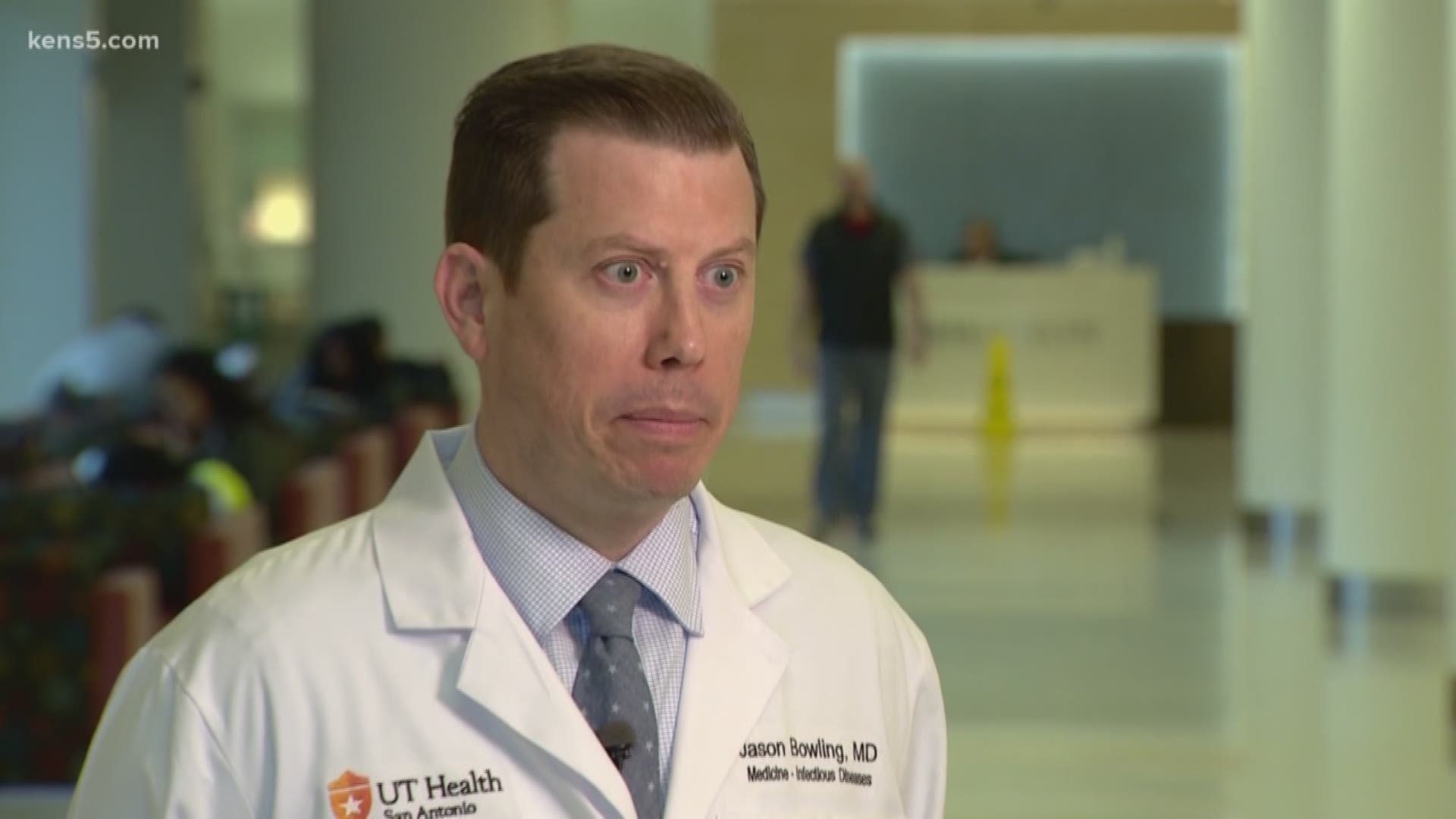SAN ANTONIO — Dr. Mirwat Sami is an ophthalmologist in Houston. Over the last couple weeks, some of her patients have shared their concerns over the coronavirus.
"We definitely have to be on the alert," Dr. Sami said. "We're ready to take care of anything, if need be."
But the symptoms of this illness are similar to common infections.
"When someone has coronavirus or just any other viral illness, even the flu virus, it can manifest with a conjunctivitis, what we call pink eye," Dr. Sami said. "It's a lot of redness, crusting, blurry vision."
She said the American Academy of Opthamolgy has shown them how to properly screen these patients. So far, they haven't had to send anything to the CDC for testing.
Dr. Sami said unless you've been to China recently, you really don't have much to worry about. "If there's a history of travel, then certainly are concern is higher," Dr. Sami said.
Dr. Jason Bowling agrees. He's the hospital epidemiologist at University Health System.
"Right now, the risk in the United States, fortunately, is extremely low," Dr Bowling said. "There are no cases in Texas." He said you're more likely to catch the flu than the coronavirus.
"If they haven't been to China within the past 14 days, they're not considered to be at risk for having coronavirus," Dr. Bowling said.
Dr. Bowling understands why people have concerns. He said the flu and the coronavirus also share similar symptoms.
"We're still learning more about this new coronavirus, but both seem to have a lot of fever, cough and shortness of breath as their predominant symptoms," Dr. Bowling said.
RELATED: Lackland AFB designated one of four potential quarantine sites in US amid coronavirus outbreak
The advice to stay healthy is the same across the board. Dr. Sami and Dr. Bowling suggest you wash your hands often, avoid touching your face and see your doctor as soon as possible if you start to feel sick.
"Practice good hygiene," Dr. Sami said. "The surfaces on our body that are the most absorptive to viruses and any infections are the inside of our mouth, our lungs, the inside of the eye."
Dr. Bowling said there's also a lot of misinformation being shared about the virus. He said to look at reputable, verified sources like the CDC for the latest updates and statistics.
"Being informed is good, but people don't need to be overly concerned at this point," Dr. Bowling said.
Dr. Bowling said the flu is still circulating. He said an estimated 10,000 people have died since the start of flu season.

